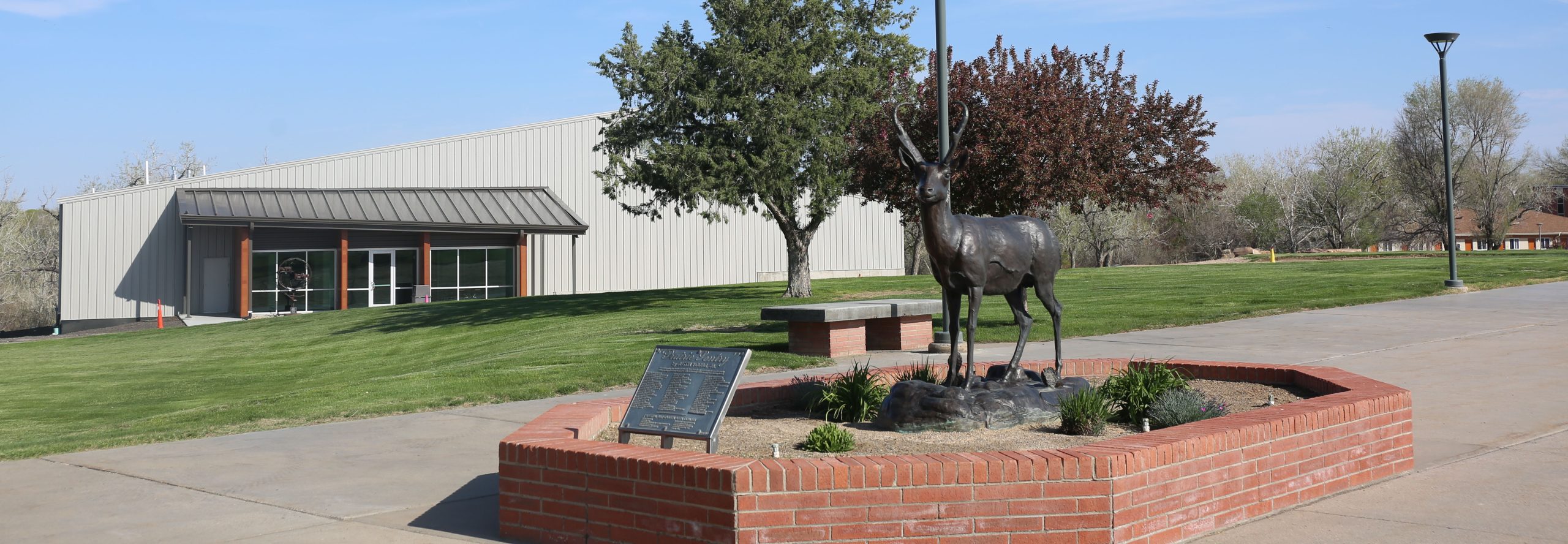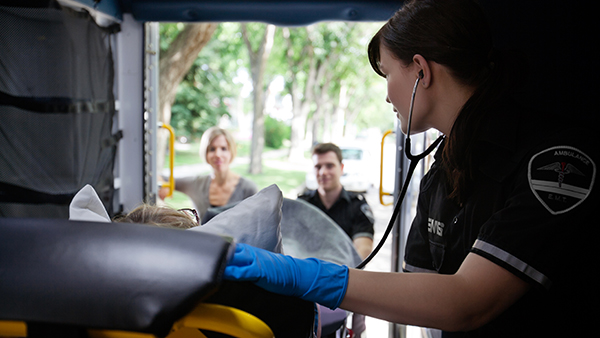Featured Programs
Helpful Links
Allied Health Programs
Join the fast-growing medical field for a rewarding career! If you have a passion for helping others and a desire to make a difference, Lamar Community College can help you find a fulfilling career path in Allied Health.
Allied Health professions, such as Certified Nurse Aide (CNA) or Emergency Medical Technician (EMT), provide the community with skilled healthcare professionals who assist in direct care of the patient including diagnosis, treatment, and rehabilitation. Allied Health professionals work in a variety of settings such as hospitals, public health facilities, health clinics, long-term care facilities, rehabilitative care facilities, and more.
Graduates of LCC’s Allied Health programs gain all of the skills necessary to succeed in the fast-paced medical workforce.
Allied Health Options
| Nurse Aide | Certificate | Certificate Plan |
| Emergency Medical Technician – Basic | Certificate | Certificate Plan |
| Emergency Medical Technician – Advanced | Certificate | Certificate Plan |
| Nursing | A.A.S. | See: Nursing » |
Nurse Aide
The Nurse Aide certificate prepares a student to enter the nursing occupation at its most basic level, as a Nurse Aide. Successful completion of the course qualifies the student to take the National Nurse Aide Assessment Program (NNAAP) Examination.
This program prepares students for employment as nurse aides in hospitals, skilled care and other health care facilities. Students will learn to become direct caregivers as a part of a team. Entering students must pass a background check through LCC prior to enrollment. Additionally, they must complete:
- Pass drug and background check.
- AHA CPR (Basic Life Support for Health Care Providers)
- Provide documentation of immunization
- 2 Doses MMR or Titer
- 3 Doses Hepatitis B or Titer
- 2 Doses of Varicella or Titer
- Tdap
- COVID Vaccination
- Seasonal Flu Vaccine
- Current TB test
Upon successful completion of the program, students will be eligible to take the Colorado National Nurse Aide Assessment Program (NNAAP) for certification through the Board of Nursing. Approximately an eight week course of study. (catalog)
Certificate recipients will be able to:
- Establish and employ effective communication techniques and interact competently with clients and the interdisciplinary tea on a one-on-one basis.
- Demonstrate sensitivity to clients’ emotional, social and mental health needs through skillful, directed interactions.
- Discuss and prescribe the process of motivating and assisting clients to attain and maintain independence while recognizing each individuals’ individual capabilities in regards to ADLs, hygiene, grooming, nutrition and elimination.
- Recall and employ knowledge and skills that support and promote each client’s rights as well as respect for the client as an individual.
- Illustrate appropriate observational and documentation skills needed in the assessment of clients’ health, physical condition and well-being.
- Demonstrate and apply professional employability skills, such as the importance of being timely and providing proficient, quality care for clients according to their care plan(s).
- Identify, discuss, employ and adhere to required proficiencies of the State Board of Nursing (SBON) Chapter 11 Rules and Regulations for Approval of Nurse Aide Training Programs.
Emergency Medical Technician – Basic
Successful completion of the Emergency Medical Technician – Basic prepares a student to sit for the National Registry of Emergency Medical Technicians Basic Exam. Successful completion of the exam allows them to practice as an Emergency Medical Technician at the introductory level. The curriculum includes basic trauma and medical assessment as well as treatment of the sick and injured. In most cases, EMS students qualify for partial or full scholarships.
Certificate recipients will be able to:
- Demonstrate the proper donning and doffing of protective gear appropriate for the Emergency Medical Technician (EMT) and situation.
- Assess, manage and stabilize patients of all ages and demographics with medical and traumatic emergencies.
- Perform basic airway management and perform CPR, both 1 and 2 persons for adult, child and infant to Healthcare provider level consistent with American Heart Association guidelines.
- Demonstrate the roles and responsibilities of an emergency medical technician (EMT) within the Emergency Medical Services (EMS) system.
- Demonstrate the knowledge of triage and assigning patients to the appropriate level facility.
- Demonstrate the ability to interact with other responders appropriately, including giving and taking advice on patient care.
- Demonstrate the ability to interact and collaborate as a member of a team.
- Demonstrate the ability to complete a patient care report including summation of treatment provided to the receiving facility or transporting ambulance.
- Perform safety management principles at the scene of an emergency.
Emergency Medical Technician – Advanced
This Certificate builds upon the knowledge gained in the basic skills certificate. The curriculum includes advanced trauma and medical assessment as well as treatment of the sick and injured. Successful completion of the Emergency Medical Technician – Advanced certificate allows a student to sit for the National Registry of Emergency Medical Technicians Advanced Exam as well as take the National Registry of EMT’s Advanced level practical examination. In most cases, EMS students qualify for partial or full scholarships.
Certificate recipients will be able to:
- Examine and analyze the nature and seriousness of the patient’s condition or extent of injuries.
- Demonstrate how to assess the need for emergency medical care and perform appropriate medical care based on assessment findings of the patient’s condition.
- Demonstrate how to lift, move, position and otherwise handle the patient to minimize discomfort and prevent further injury.
- Define and employ the roles and responsibilities of an advanced emergency medical technician within the Emergency Medical Services (EMS) system.
- Perform the basic concepts of development, pathophysiology and pharmacology for assessment and management of emergency patients.
- Demonstrate how to properly administer medications per industry standards.
- Perform advanced airway management for adults, children and infants. Perform CPR, both 1 and 2 persons for adult, child and infant to Healthcare provider level consistent with American Heart Association guidelines.
- Demonstrate how to effectively communicate with patients, peers and healthcare professionals.
Entrance Requirements
- Students for either program must be enrolled in the college and be at least 16 years of age (birth certificate required).
Cost of Textbooks/Supplies
- Tuition based on total number of credits taken.
- The cost may vary from semester to semester.
- Estimated Cost of the CNA Program
Morgan Clark, MSN, RNDirector of Nursing and Allied Health | |
Kristie FaceCTE and Nursing Instructional Coordinator | |
| photo coming soon | Heather BurkhartEMS Coordinator |


